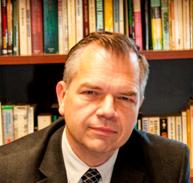In 2013 Mark Burnett, the #1 TV Hollywood producer, was our keynote speaker in front of 450 attendees at the ELO World Conference. One guest as they walked into the ballroom, gasped, “I’ve been told about Christians in business, I’ve just never seen this many before.”
I’ve heard these comments from people attending the ELO World Conferences who were invited along by others. They knew they were coming to some “Christian-type” event, but didn’t know exactly what that would entail or what these types of people actually looked like!
Is this farfetched? Not at all. There are apparently a significant number of Christians in Canada. A great number are involved in business. Many of them have well-known businesses. And, yet, they are generally “invisible.” What do I mean by invisible? Well, we know or think they are out there—but very few people have seen them.
Why is this the case in Canada? There are several challenges. First, faith has become privatized. The prevailing view among the non-religious is that faith is a private matter and should not be brought into the public square. This “religion chill” has crept into our societal thinking.
“Freedom of religion” is viewed as “freedom from religion” for many. You can have a view on something—just don’t say it has a religious origin. Otherwise, you will be perceived as unreasonable, narrow-minded, anti-something/anti-everything and a whole bunch of other things you weren’t aware of. It is fine to believe something, just don’t let it impact what you do.
Second, Christians act in isolation. Christians tend to circle the wagons in their personal lives. They don’t freely share their life and opinions—too much blowback from people who disdainfully disagree due to preconceived notions. For example, the terms “Christian,” “evangelical” and the dreaded “born again” all have negative connotations. Thus, Christians share their faith in safe harbours and not in rough waters and with people who think like them rather than those who don’t.
Third, invisibility is facilitated by fragmentation and the challenge of gaining an organized critical mass. Protestants have an in-built can of worms—it self-fragments. The Protestant church was, of course, the world’s preeminent protest movement. The Catholic Church was opposed; new movements and denominations were unleashed. Today’s manifestation is that if you’re in a church and you don’t like it, well, start your own. Stand-alone churches and denominations proliferate in an amoeba-like fashion. As a result, bringing people back together for any unified purpose is a challenge.
Lastly, the invisibility of Christians occurs due to disengagement with the broader society. Christians seems to have thrown up the white flag. There is little sense of being a contributor to society—instead we are disengaged from it. With an H. Richard Niebuhr typology, this is “Christ against culture.” There is decreasing perceived value to being part of a bigger whole
These four trends contribute to the invisibility of Christians in the broader society. What’s the result of this situation? As Mark Burnett noted at the ELO World Conference in 2013, “Christians are the largest, most ineffective tribe in the world.” Mark Burnett made this comment not in the spirit of condemnation but rather as a spur to action.
What is a way to start changing that? Join the ELO movement and make a stand. ELO World Conferences are an attempt to counter the trend toward invisibility. So, stand up to be counted. Be part of the ELO World Conference by making it a priority to attend. The Invisible Christian – Don’t Be One.
